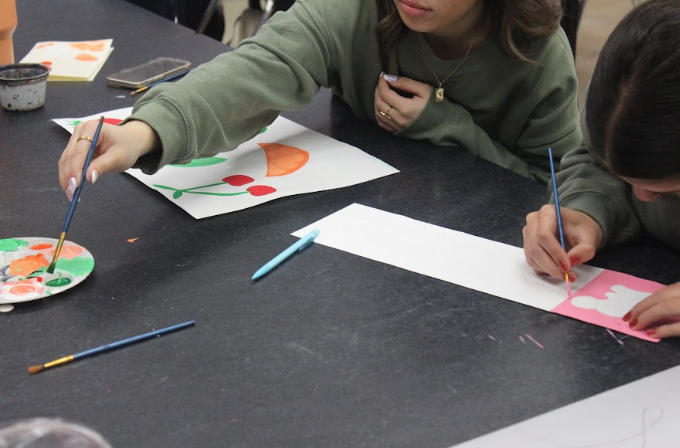There are less than two months of school left. The weather is warming up, seniors’ college/work ambitions are becoming reality and summer vacation plans are taking form. The air is tinted with excitement and anticipation.
We are almost free.
… Almost.
There is an unfortunate circumstance underlying the excitement of the end of the year for many students on campus: Advanced Placement exams. AP exams will be taking place during the first two weeks of May, and if you’re like me, this is causing you stress.
With only a few weeks left before those exams take place, there is an abundance of stress and anxiety. Taking one exam on a year’s worth of content can be daunting. The amount of work and time students have put into their AP courses is reflected by one number which is used to score the exams. If that number is less than a three, there is almost no chance of getting any credit beyond high school for the stress and work students have been devoting all year long. That’s a lot of pressure.
Fortunately, it doesn’t have to be that hard. AP tests, though overwhelming, are very doable and you can succeed! Give these test prep strategies a try!
1. Make a plan and start early.
Break up the course material by section and/or chapter and schedule when you will review which topics. This will make the year’s worth of content seem more manageable. This will also ensure you aren’t cramming the night before your test! Cramming information the night before will only leave you feeling overwhelmed and tired. Your brain needs time to process information and you need time to practice for the test. Start reviewing as soon as possible to insure you are comfortable and confident on the day of the exam.
2. Grab a study partner (or two).
You have a whole classroom of peers going through the same material and test as you, so take advantage of them! It’s nice to have a buddy to study with to keep you focused and on track. In addition, everyone learns differently and is stronger in different areas, so it’s smart to have multiple brains and students collaborating on the material. Your friend may know more than you do about one thing while you are stronger in a different area! We often learn best when we learn from each other, so don’t go solo when you prepare for these exams.
3. Eat healthy foods, drink water, exercise, get good rest.
It’s important to take care of your physical well-being so your brain and memory function well! Many studies have shown a correlation between physical health and mental capacities. Be kind to your body so your brain is ready to work as hard as you need it to.4.
4. Take breaks.
Arguably the worst thing you can do to prepare for a test is study so hard for too long that you cause yourself to burn out. Sitting down and studying for five hours straight will likely cause you to go mad instead of helping you prepare for an exam. Set timers and give yourself 5-10 minute breaks every 45-60 minutes of intense studying. This will help you stay fresh and focused (and sane). I have found that after multiple days and weeks of preparing for an exam, it’s helpful to stop studying the day before the test and take a HUGE break. Go out to eat or watch a movie! Do something light and fun that won’t tire you out but will also put you in a good, positive mood for test day. There’s only so much studying you can do, so make sure you’re in a good mindset when you go in.
5. Positive affirmations.
Pep talks really work. Talking to yourself may look odd to others, but sometimes, you have to speak ideas into being so that you actually believe them. Here are some encouraging truths you should remind yourself of on the morning of the test. Write them down, say them out loud, whatever it takes for you to believe them.
- You know what you know and you know a lot.
- You’ve worked hard.
- You are intelligent and capable.
- At the end of the day, your score doesn’t define you.
Best of luck on your exams! You can do it!






